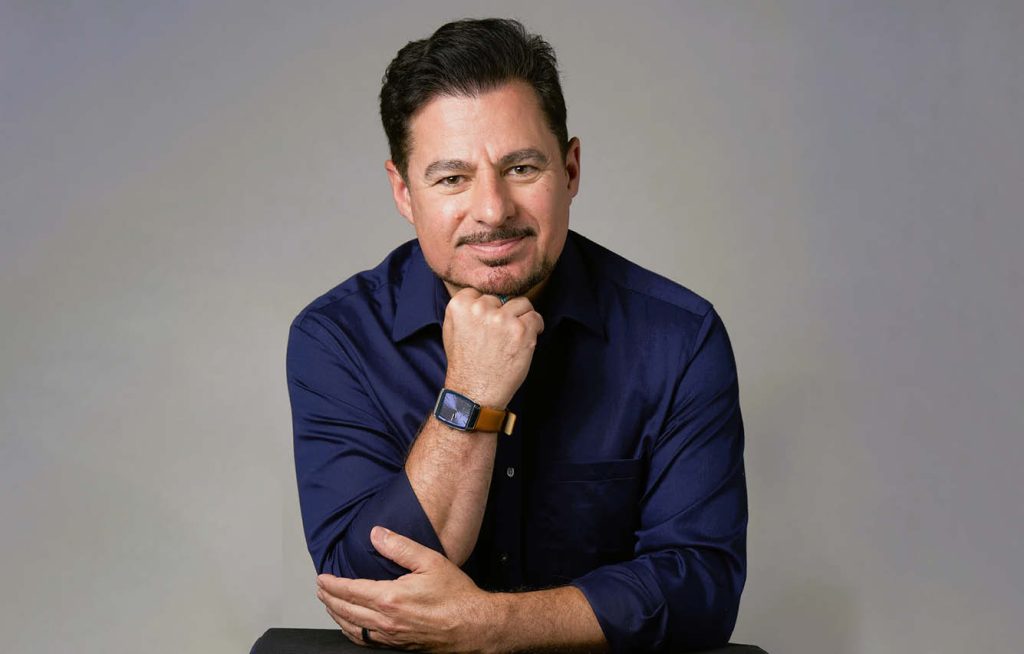1. You do so much with writing and education. Let’s start with your role at Liverpool High School.
At Liverpool High School, I work with ninth and 10th grade special needs students as a “program manager.” This means I attend classes with them and act as a sort of tutor for the group when they are not in those classes. I also work one-on-one with more severely autistic children to keep them safe and help them reach their educational goals.
2. Can you tell us about The Writer’s Life class that you teach? What can students expect and who is it for?
The Writer’s Life is a series of three classes (each eight weeks long) at the Downtown Writers Center. They are designed for people who would like to write but are reticent and have little idea where to start or have tried and have become frustrated with the process. It is a group of like-minded folks like themselves, and an instructor (myself), who has navigated those same waters and
arrived at a place of success, or the least satisfaction, in the author’s journey.
The first class is for beginners and is designed to open the gates of their imagination and creativity and allow them to write unhindered by doubt. We do a lot of discussions and prompt writing in that first class. In the second phase, we take what they’ve been able to create, their rough drafts, and teach them how to self-edit. We use the tried-and-true methods of successful fiction writers. The third class introduces them to the process of workshopping, which is introducing their work to others and being open to feedback. They learn how to give and take constructive feedback, which is designed to help them get their pieces to their top potential. The courses start in the early fall and end at the beginning of the summer of the next year.
3. An Unsettled Score is a collection of 20 short stories. Was this a project you had been working on for years and wanted to compile into one book? Or was it a more recent decision?
An Unsettled Score is a book I never planned on writing. I had published upwards of a dozen short stories over about a decade, in both print and online magazines. I was perfectly happy continuing to do just that. But when I started writing new material and had a few new pieces finished, I decided it would be a shame to lose all of my previously published tales to the sands of time. So, I tried to package my newer material with some of my previously published work into one collection. My publisher was on board with that decision as they historically only released long-form works, such as novellas and novels.
Since my publisher required a large amount of material for the book, I kept writing new stories until I had enough to pair with the best of my older work. When I reached 19 stories, I decided to write one more to make 20. It just seemed right in some strange way. In the end, that’s where the title of the book sprung from; A ‘score,’ meaning 20 fantastical stories of speculative fiction, which were oftentimes ‘unsettling.’ It just fit, so we went with it.
4. Among all of the roles you play in the industry, do you have a favorite?
Having been a teacher, lecturer, and editor of fiction, as well as a writer of fiction myself, my favorite role is that of an actual writer. While I love imparting knowledge and wisdom about the craft to eager minds, giving feedback, and waxing poetic to burgeoning young authors, the role of the author is my favorite. Make no mistake, it is the hardest role. It is the most solitary role. For those reasons, it’s not necessarily the most fun, but it does bring the greatest level of satisfaction to me. To create
something from the ether, characters, plot, and setting, and bring it to life in the mind of the reader, is the most fulfilling thing I could ever do. So, while I love all my roles, the role of the writer is my favorite.
4. What are your future goals with fiction writing?
My goals remain the same. I’m always striving to continue producing meaningful, entertaining, and well-written stories and finding a home for them. If that means collecting them all in another collection, so be it. That would be great! But if they only live floating around in various magazines and ezines, that’s fine too. Even if they’re not published at all, the goal is always that they just be written and shared. I’m forever trying to bring a little bit of joy to some new reader out there who has a taste for the fantastic like I do. I think all authors are just trying to make connections through their work, even if it’s with people they never actually get a chance to meet.





